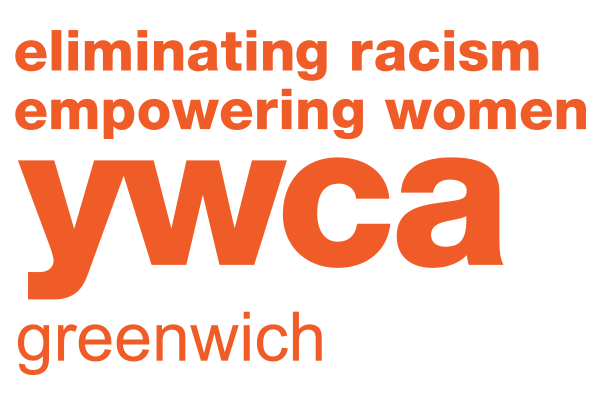
Preschool Swim Playdate
February 13, 2020
Opinion: Make sure you are counted in census
March 9, 2020GREENWICH TIME by Emilie Munson 15.February.2020: Mary had been living at the East Hartford spa for more than a year when police arrived in September 2014.
Also read CT Post follow-up story: After Hearst probe, state to combat human trafficking
A 911 call from a someone “screaming hysterically” summoned officers to the business, police records say. Mary’s boss, Joan, told police there was a simple workplace dispute over a broken toilet. (Hearst Connecticut Media is not using the women’s real names or the business name because there were no arrests).
But when police interviewed the 57-year-old Mary, they heard another story. Joan made Mary and other female employees perform sex acts on the stream of men who visited the East Hartford massage parlor, police records state. Mary was kept at the spa through a debt and violence, she told police according to records.
“Frantic” and “desperate,” Mary, police noted, had scratches on her arms, records say. Joan beat her, she told the officers, punching the air to make her point.
Around the state, many women are living in similar conditions at massage parlors selling illicit sex services, interviews with police and advocates indicate. The businesses are pervasive. They are often located on main streets and operate in daylight.
On the internet, it is easy to find graphic reviews from people who claim to have bought sex services at these businesses. Around the country, police often use these review boards, including a website called Rub Maps, as one source of information when investigating possible prostitution and human trafficking crimes.
CT Insider reviewed 10 years of police records for 30 massage parlors with user “reviews” posted on Rub Maps. As of Jan. 6, the site identified 98 massage parlors in 47 towns where anonymous reviewers claimed to have engaged in sexual acts.
Based on investigations from Connecticut’s Department of Labor and the counter-trafficking non-profit Polaris, there are 250 illicit massage businesses operating in Connecticut at any given time, the state Trafficking in Persons Council said in its 2018 annual report.
Police records and interviews indicate that human trafficking is suspected at some illicit massage businesses. The U.S. Department of Homeland Security defines human trafficking as using force, fraud or coercion to obtain some kind of labor or sex act from a person. The National Human Trafficking Hotline identifies sex trafficking as the most prevalent kind of human trafficking in Connecticut and illicit massage parlors among the top venues for this crime.
And while police, health and labor officials often have frequent contact with illicit sex businesses , the most they can usually achieve is a temporary halt to the world’s oldest trade, a CT Insider investigation finds.
“The supply and demand, it’s not going away,” said East Hartford Police Officer Courtney Desilet, a certified lead instructor of human trafficking investigation strategies. “We shut one down and another one goes up. It’s a continuous cycle and it’s a continuous battle for us.”
CT Insider made multiple attempts to get comment from the massage businesses referred to in this story. All declined or did not respond.
Sex review boards
In 2018, Backpage.com was shut down by the FBI and Craigslist eliminated its popular personals section. But in their place, numerous sex review boards proliferate.
John Bucherati, detective lieutenant of the Fairfield Police Investigation Division, said these websites have increased demand for and access to prostitution in Connecticut.
“All the information is at your fingertips,” said Bucherati. “Years ago, people had to go out and look for this stuff by word of mouth. Now they just do a computer search.”
This accessibility can also be a boon for cops. Stamford Police have used one review board website called Rub Maps as an investigative tool as far back as 2013, police records show. Greenwich police used screenshots of Rub Maps reviews to apply for a search warrant for a massage parlor in 2017.
The Rub Maps’ website lists a business address in the Czech Republic. Rub Maps operators did not return emails requesting comment.
Rub Maps reviews were one piece of evidence that police in Jupiter, Florida used when they busted Orchids of Asia Day Spa, following a sprawling 8-month investigation across Florida and New York. The investigation revealed an alleged multi-million dollar prostitution operation and netted the arrest, among others, of Robert K. Kraft, owner of the New England Patriots. Kraft’s case is ongoing.
But online reviews can’t justify an arrest or put an establishment out of business on their own, said Brian Sibley, a senior assistant state’s attorney in New Haven. While the reviewers are admitting to crimes, they are generally anonymous.
“I could be sitting at my computer, going to Sunny Spa massage parlor, writing reviews all day long and never have been in there,” Sibley said. “Because it also could be people trying to promote their business. Then you go to interview those people and they say ‘No I was just making that up.’” The reviews are generally anonymous and difficult if not impossible to verify.
The “holy grail”
Police use numerous tactics and recruit the help of local and state labor, health and zoning officials to investigate prostitution at erotic massage parlors throughout Connecticut. Sometimes those investigations produce arrests, but rarely do they shut down a business for good.
In contrast, human trafficking is the “holy grail” of police investigations into massage parlors, said Stamford Police Captain Richard Conklin, who leads his department’s Bureau of Criminal Investigations.
Human trafficking is the world’s fastest growing criminal enterprise – an estimated $32 billion-a-year global industry, according to the U.S. Department of Justice. After drug trafficking, human trafficking is tied for the second most profitable criminal business, along with weapons smuggling.
Connecticut’s coastal location between major metropolises contributes to the flow of trafficked individuals across the state.
“We are conveniently located in between New York and Boston and there is a lot of transit through Connecticut,” said Alicia Kinsman, senior staff attorney at Connecticut Institute for Refugees and Immigrants, which provided services to 150 human trafficking victims in 2019, including 30 new clients. “We have an airport. We have major shipping routes. So there is a lot of activity here.”
Since 2007, the National Human Trafficking Hotline has fielded 1,283 calls about trafficking from Connecticut and recorded 345 cases.
In 2018, 93 calls were reported to the Connecticut hotline for anti-trafficking services and enforcement, 30 from survivors themselves. In addition to sex work, trafficking in Connecticut has been identified in domestic work and housekeeping, and the health, beauty, transportation and agriculture industries.
Deception and coercion
About half the 98 Connecticut massage parlors with reviews on Rub Maps are not currently registered with the Secretary of the State’s Office. Of those that are registered, roughly one quarter had addresses in Flushing — part of the New York City borough of Queens — connected to their establishment.
Flushing is believed to be an epicenter for human trafficking networks crisscrossing the country. It is unclear if human trafficking has not been proven at the businesses registered in Connecticut with Flushing addresses.
Women arrive in Flushing singly or with family, from countries like China and South Korea, looking to escape lives of debt, poverty or domestic violence, said Yvonne Chen, supervising program manager of Anti-trafficking Initiative Outreach at the New York City-based Sanctuary for Families. Sanctuary for Families helps about 400 survivors of human trafficking a year, including some who worked in Connecticut.
“People usually get linked up to a plane ticket and a tourist visa. A lot of people owe money and are in debt because of that and then they come here to the US,” said Chen. “When they get to the US, they get connected to someone else who is supposed to help them navigate the system here. Other people do not and they just fly into JFK [International Airport in New York] and they are told to go to Flushing because that’s where a lot of their community might be.”
The scams and deception often start when these women touch down at the airport. Sometimes they are charged a few hundred dollars to travel nine miles from JFK to Flushing, Chen said.
They typically move into family-style hotels where they are told about massage work, Chen said. They may hear about massage work through WeChat, acquaintances or online. Others see advertisements in New York Korean newspapers, East Hartford Police records show.
Often the women are driven by a boss to the massage parlor and may not know where they are. When they arrive, they may be unaware they are expected to deliver sex services until a client asks, Chen said.
At that point, the owner may use physical or psychological coercion to persuade the employee to engage, multiple advocates said. They may take the workers’ passports or threaten them with deportation. Language barriers, entrapment, debt, fear, shame and confusion all may prevent these women from seeking help.
Police never confirmed trafficking was occurring at the East Hartford spa where Mary worked in 2014. But the experience of Mary shows how an employer can use a debt to control his or her workers.
Mary told East Hartford Police in 2014 every woman who worked in the spa paid the boss $6,000 to fraudulently obtain a valid Connecticut massage therapy license in someone else’s name, police records say. Her boss charged their male customers $60 an hour for services, records show. The workers only kept their tips, averaging $10 to $20 an appointment. Mary just wanted her $6,000 back and to go home to New York, she told police.
Escaping a human trafficking situation is difficult and often requires outside intervention or multiple attempts, said Kinsman. Women emerge from sex trafficking poor, fearful and desperate. Without supports, they may be easily swept up again.
Moreover, sex trafficking of women creates problems across the industry, Chen added. Traffickers put not only their own workers, but employees of other businesses, at risk for sexual assault and other crimes.
“Often there are people who assume that any massage parlor with Asian women – due to fetishes of Asian women – will assume that sexual services are being provided there,” Chen said. “Our clients who are working in massage parlors that do not provide sexual services will get harassed and raped. People get robbed all the time.”
Living at work
When police and city or state inspectors visit a massage parlor, they often look for signs that people might be living at the business. Evidence of workers inhabiting a business can signal human trafficking is occurring, said Kinsman.
But such conditions alone are not enough evidence to produce human trafficking charges.
When police in March inspected one New Haven spa — the business with the most reviews on Rub Maps in Connecticut — they noticed something they thought “should be noted.” Police records say officers observed “bedrooms/living quarters” in the spa. In addition to massage tables, officers saw mattresses, clothing, a working kitchen, stored food and “several trap doors.”
“On the windows and the doors, there were metal rolling doors, which pulled down and could only be locked from the inside,” the officer wrote. “It should be noted most metal rolling doors lock from the outside after the person has left the premise.”
Police also observed evidence that people might be living at a business named Sun Star at the same address in 2013, police records show.
Police work never produced any human trafficking charges at the New Haven business to date.
In Milford, New Haven, Danbury, East Hartford and Stamford, police also recorded evidence that workers might be living in massage parlors and some specifically noted suspicions of human trafficking. None of their investigations produced human trafficking charges and the businesses largely continue to operate.
emilie.munson@hearstdc.com; Twitter: @emiliemunson



